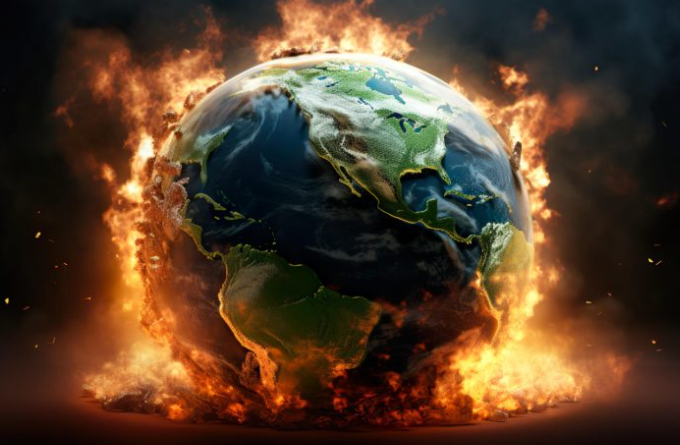2024 – A Year of Climate Crisis: UN Report
The United Nations has reported extreme weather patterns and record-breaking heat, urging immediate global action to avert disaster. Greenhouse gas emissions have reached alarming highs, contributing to a worrying trend of escalating temperatures.
Extreme Weather Events
2024 has seen severe weather phenomena, including record rainfall and devastating floods. Tropical cyclones have inflicted human and economic damage in various regions, notably in Mayotte. Many countries have reported temperatures exceeding 50 degrees Celsius, leading to widespread wildfires and destruction.
Global Temperature Trends
The global average temperature has risen sharply, with November 2024 indicating an increase of 1.54 degrees Celsius above pre-industrial levels. This trend suggests that 2024 is on track to be the hottest year ever recorded, surpassing the previous record set in 2023.
The Paris Agreement Goals
The 2015 Paris Agreement aimed to limit global warming to below 2 degrees Celsius. The goal of keeping temperature rise within 1.5 degrees is increasingly at risk. The World Meteorological Organization (WMO) will provide final temperature data for 2024 in January, followed by a detailed report in March.
Urgent Calls for Action
UN Secretary General Antonio Guterres has labelled the current climate situation a “climate breakdown.” He emphasised the necessity for drastic emission cuts by 2025 and a transition to renewable energy sources. The WMO has consistently raised alarms regarding the growing threats posed by extreme heat.
As the WMO approaches its 75th anniversary in 2025, it plans to concentrate on the Earth’s frozen regions. This includes monitoring sea ice, glaciers, and permafrost. The organisation aims to enhance climate services and early warning systems to better safeguard communities globally.
GKToday Notes:
- WMO: The World Meteorological Organization monitors climate and weather. Established in 1950, it provides vital data and services, enhancing global awareness of climate-related challenges and impacts.
- Mayotte: Mayotte is an overseas department of France located in the Indian Ocean. It is known for its volcanic landscapes and diverse marine life, facing climate-induced challenges like rising sea levels.
- Permafrost: Permafrost refers to permanently frozen ground found in polar regions. Its thawing due to climate change releases greenhouse gases, exacerbating global warming and impacting ecosystems and infrastructure.
Month: Current Affairs - December, 2024
Category: Environment Current Affairs







